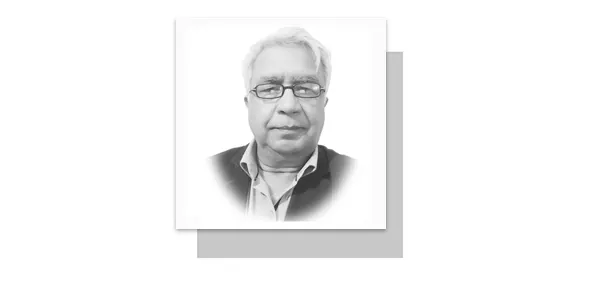LIKE any other form of art, post-colonial and post-modern literature is evolving in its content, style and audience because of the rapid globalization, migration and ecological issues. Besides, the oppression and divide, as basis of story creation, have persisted even in the 21st Century and the technological progress aiming at the rights of humanity has not been able to bridge the gap between, what is desired and what is being done. Consequently, significance of telling stories has multiplied in terms of socio-political impact and the growing voices on multifaceted platforms available to the human creativity. This is further supported by the technological support available to everyone. This makes literature not only survive but also thrive in multiple forms and hues.
The major shift is from hardcopies to digital ones enabling the writers to avoid the rigorous process of writing, editing and publishing and, so, more and diversified forms of literature are emerging. This also democratized the accessibility to literature. Now the readers can carry hundreds of books on their cell phones and other digital gadgetry and can experience the pleasure of reading anywhere, anytime and any space. The digital accessibility has allowed and facilitated the customization of the reading styles. So, instead of moving towards the path of becoming extinct, literature has rather emerged rather vigorously.
In the 21st century, writers have evolved to engage a global audience, transcending national boundaries. Literature now addresses collective issues rather than just individual concerns. Characters represent diverse socio-cultural identities and their experiences are not confined to specific times or places. Global challenges like ecological crises and epidemics have unified humanity, making stories inherently global. Massive migration has further blurred distinctions of race and colour, creating a diverse tapestry of humanity. As people constantly move, migration literature reflects their nomadic nature. Language and identity have become fluid, resembling the blend of colours in a cup of tea, as depicted in Hamid’s novel “Exit West.
Translations and the world literature have further expedited the evolution of literature in the 21st century. The availability of machine translations has made the literature of one language available in any other and removed the difficulty of understanding literature in any foreign language. This has brought forward the writers of regional language and hence providing a diversified creative experience. The rapid introduction to the local and indigenous cultures through literature has made it a necessary medium for the discussion and debate about the people and culture so far either neglected or under represented.
Stories are being published now on multiple platforms and literature is fuelling it to further increase in volume and styles. Written word is not only digitalized but also it is being adapted into audio and video formats for lending diversity of accessibility as per the needs and requirements of the audience. The literature has captured more audience than ever. The more the audience, the more is the production of literature. This makes it survive on multiple platforms and so vigorously assert itself in the 21st Century.
Above all, humanity is still sufferings from socio-political and psychological conflicts even after a huge development at the civilization front. These conflicts generate stories of oppression, hunger and sufferings which needs to be told for catharsis and learning. Wars, natural calamities, and greed of the capitalistic nature have given birth to new paranoia and anxiety which can be cured at many levels by telling and listening to the stories. Telling stories is the human trait embedded in his genes compelling him to voice his story and experience. Literature provides the impetus, the ignition and a workable platform where even those stories can be told which are suppressed and are prohibited by the dictatorial tendencies. Literature has made it possible to hear the voices of the unheard, marginalized and subalterns. Science and technology has made it viable in this age.
The scientific advances and technological wonders have made us look into deeper space and explore our future chances to populate heavenly bodies but the humanity is divided further into multiple shapes. There is the information and knowledge divide manifest in various parts of the world which is causing food divide, rights divide, accessibility divide. These divisions have made it necessary more than ever that stories must be told to mitigate not only sufferings but also to raise voice of the human right for an equal opportunity and access. Literature provides and excellent platform for this and helps further keep alive the moral, ethical, political and human values to keep societies healthy and happy. This and many more benefits of literature have made human beings keep literature as an essential part of their humanness in the 21st Century.
—The writer is a Professor of English at Emerson University, Multan, and has a vast international exposure.
Email: [email protected]









